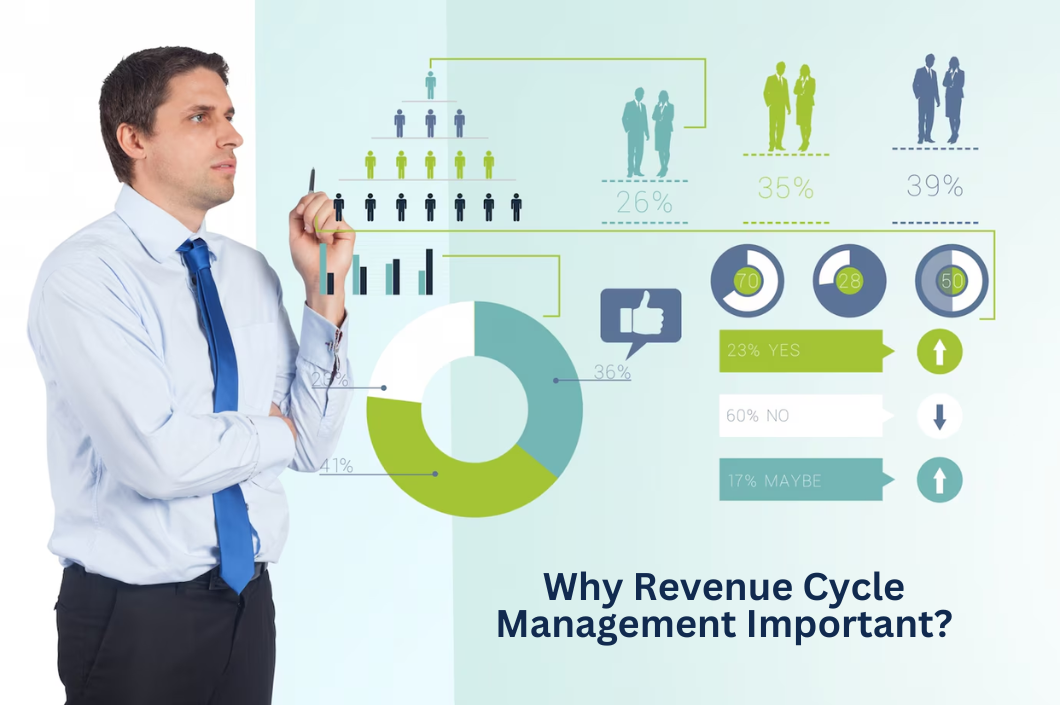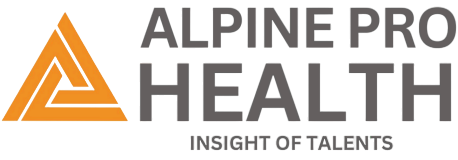Medical coding is a fundamental part of Revenue Cycle Management that ensures accurate reimbursement from insurance companies and government payers like Medicare and Medicaid. The process involves assigning ICD-10, CPT, and HCPCS codes to diagnoses, procedures, and services rendered by healthcare providers.
Role of Medical Coding in Revenue Cycle Management
1. Ensures Accurate Billing and Reimbursement
Medical coding translates medical procedures into standardized codes that insurers recognize. Any errors in coding can lead to claim denials, delayed payments, or underpayments, negatively impacting a provider’s revenue stream. Proper coding ensures that:
- Claims are submitted correctly the first time.
- Providers receive full reimbursement for services rendered.
- Billing errors are minimized, reducing claim rework and delays.
2. Enhances Compliance and Reduces Fraud Risk
Regulatory compliance is a significant concern in healthcare billing. Errors or fraudulent coding can lead to regulatory audits, hefty fines, and legal penalties. Proper RCM practices ensure that medical coding adheres to guidelines set by:
- Centers for Medicare & Medicaid Services (CMS)
- Health Insurance Portability and Accountability Act (HIPAA)
- Office of Inspector General (OIG)
By maintaining accurate coding and documentation, healthcare organizations reduce the risk of non-compliance and legal issues.
3. Minimizes Claim Denials and Improves Revenue Flow
Claim denials are a major challenge in healthcare revenue management. Common reasons for denials include incorrect coding, missing documentation, and non-covered services. Implementing an effective RCM system helps:
- Reduce coding errors through automated validation tools.
- Identify and correct potential issues before claims submission.
- Enhance denial management strategies, leading to quicker claim resolutions.
4. Supports Financial Sustainability of Healthcare Organizations
RCM ensures the financial viability of healthcare facilities by optimizing revenue generation and cash flow. Accurate coding and efficient claim submission processes prevent revenue leakage, helping hospitals and clinics maintain profitability while continuing to provide quality patient care.
5. Enhances Patient Satisfaction and Transparency
Billing transparency is essential for improving the patient experience. Incorrect coding can lead to billing discrepancies, patient confusion, and financial stress. RCM systems that integrate accurate medical coding:
- Provide clear and accurate billing statements to patients.
- Reduce disputes over charges.
- Improve trust between patients and healthcare providers.
More Claims are Paid After the First Submission
One of the key indicators of an efficient Revenue Cycle Management (RCM) process is the first-pass claim acceptance rate, the percentage of claims paid upon initial submission. When claims are accurately coded and thoroughly reviewed before submission, healthcare providers experience faster reimbursements, fewer denials, and reduced administrative burdens.
By implementing automated claim scrubbing, real-time eligibility verification, and robust documentation practices, providers can maximize their revenue potential and maintain a steady cash flow. A high first-pass claim rate not only accelerates payments but also minimizes costly rework and resubmissions, ensuring financial stability for healthcare organizations.
Challenges in RCM and Medical Coding
Despite its importance, RCM faces several challenges, including:
- Frequent Coding Updates – ICD-10 and CPT codes are constantly evolving, requiring coders to stay updated.
- Regulatory Changes – Compliance with new healthcare regulations adds complexity to medical billing.
- Claim Denials – High denial rates due to coding errors or missing information slow down revenue collection.
- Integration Issues – RCM software must seamlessly integrate with Electronic Health Records (EHR) and billing systems.
Strategies to Optimize RCM in Medical Coding
1. Invest in Technology and Automation
Using advanced AI-driven medical coding software and RCM platforms can:
- Automate coding validation to reduce errors.
- Improve claim accuracy through real-time audits.
- Enhance efficiency by integrating with EHR and billing systems.
2. Train and Certify Medical Coders
Continuous education and certification programs for medical coders ensure they stay updated with the latest industry changes. Encouraging coders to obtain certifications such as:
- Certified Professional Coder (CPC)
- Certified Inpatient Coder (CIC)
- Certified Coding Specialist (CCS)
leads to improved accuracy and compliance in coding practices.
3. Implement Robust Denial Management Strategies
Developing a proactive denial management process includes:
- Regularly analyzing denial trends.
- Addressing root causes of rejections.
- Establishing a streamlined appeal process to recover lost revenue.
4. Conduct Regular Audits and Compliance Checks
Routine audits help detect errors and improve coding accuracy. Organizations should:
- Perform Pre-Bill and Post-Bill audits to identify inconsistencies.
- Implement Clinical Documentation Improvement (CDI) programs to enhance documentation quality.
5. Enhance Coordination Between Departments
Collaboration between coders, billing teams, and healthcare providers ensures smoother workflows and accurate documentation. Clear communication reduces claim rework and accelerates revenue collection.
How Alpine Pro Health Can Help?
At Alpine Pro Health, we specialize in optimizing Revenue Cycle Management (RCM) and medical coding services to ensure accurate reimbursement and compliance. Our team of certified coding experts, combined with AI-driven solutions, helps healthcare providers minimize denials, enhance claim accuracy, and improve revenue integrity.
Partner with Alpine Pro Health to experience seamless medical coding and revenue cycle solutions that drive financial success while ensuring compliance with industry standards.
Connect with us today to elevate your revenue cycle performance!
Conclusion
Revenue Cycle Management (RCM) is a vital component of the healthcare industry, ensuring that medical services are accurately coded, billed, and reimbursed. Efficient RCM processes help minimize claim denials, improve compliance, and enhance financial sustainability for healthcare providers. By investing in technology, training, and streamlined workflows, healthcare organizations can optimize their RCM strategies, leading to better revenue integrity and an improved patient experience. As the healthcare landscape continues to evolve, a strong focus on RCM and medical coding will be key to financial and operational success.


